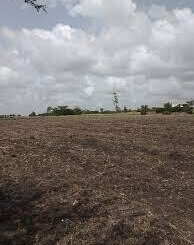Title Deeds in Kenya: Comprehensive Guide to Secure Land Ownership
by admin · Published · Updated
Table of Contents
ToggleOwning property is a significant milestone, and in Kenya, it all starts with one critical document: the title deed. Whether you’re buying, selling, or inheriting land, understanding title deeds in Kenya is essential for safeguarding your investment.
In this comprehensive guide, we’ll explore what title deeds are, their importance, types, the process of acquiring them, and the legal requirements involved. By the end, you’ll have a clear understanding of how title deeds work and why they are the cornerstone of land ownership in Kenya.
What Are Title Deeds in Kenya?
A title deed is a legal document that serves as proof of ownership of a piece of land or property. It provides the holder with the right to use, sell, or transfer the property, subject to any applicable laws or restrictions.
In Kenya, title deeds are issued under the Lands Registration Act, 2012, which consolidates and streamlines the process of land registration and ownership.
Key Features of a Title Deed
- Unique Identification: Every title deed has a unique registration number tied to a specific parcel of land.
- Details of Ownership: It contains the owner’s name, ID number, and other personal details.
- Land Description: Includes information about the size, location, and boundaries of the land.
- Encumbrances: Indicates if the land has any restrictions, such as mortgages or disputes.
Importance of Title Deeds in Kenya
Owning land without a title deed is risky, as it opens up possibilities for fraud, disputes, or even loss of ownership. Here’s why title deeds in Kenya are crucial:
1. Proof of Ownership
A title deed is the ultimate evidence that you are the legal owner of the property. Without it, your claim to the land may not hold up in court.
2. Security of Tenure
With a title deed, you have the legal right to occupy, develop, and use the land without fear of eviction or interference.
3. Ease of Transactions
Title deeds simplify the process of selling, leasing, or transferring land, as they serve as official documentation of ownership.
4. Access to Credit
Financial institutions often require title deeds as collateral for loans, making them valuable assets for property owners.
5. Dispute Resolution
In cases of boundary or ownership disputes, a title deed provides the definitive record of who owns the land.
Types of Title Deeds in Kenya
Understanding the different types of title deeds in Kenya is essential, as they vary depending on the property and how it was acquired.
1. Freehold Title Deeds
- Description: Grants the owner absolute ownership of the land for an indefinite period.
- Usage: Commonly issued for agricultural land or land in rural areas.
- Advantages: No rent or lease payments are required.
2. Leasehold Title Deeds
- Description: Ownership is granted for a fixed period, usually 99 or 999 years, after which it can be renewed.
- Usage: Common in urban areas where land is leased from the government.
- Advantages: Clearly defined terms of use, including allowable developments.
3. Group Title Deeds
- Description: Issued to a group or community owning land collectively, often found in areas managed by community trusts.
- Usage: Common among pastoralist communities or cooperative societies.
4. Sectional Title Deeds
- Description: Issued for individual units within a larger development, such as apartments.
- Usage: Allows individual ownership while sharing common areas like staircases or parking spaces.
How to Acquire Title Deeds in Kenya
The process of acquiring a title deed involves several steps, depending on whether you are buying, inheriting, or subdividing land. Here’s a detailed breakdown:

Title Deeds in Kenya
Step 1: Conduct a Land Search
Before any transaction, perform a land search at the Ministry of Lands or the eCitizen portal to verify:
- Ownership details.
- Encumbrances like mortgages or disputes.
- Exact size and location of the land.
Step 2: Draft a Sale Agreement
If you’re purchasing the land, draft a legally binding sale agreement that outlines:
- The agreed purchase price.
- Payment terms.
- Responsibilities of both parties.
Step 3: Payment of Land Rates and Stamp Duty
Ensure all land rates are cleared by the seller. Then, pay the stamp duty, which is a government tax on property transfers.
Stamp Duty Rates:
- Urban Areas: 4% of the property value.
- Rural Areas: 2% of the property value.
Step 4: Transfer of Ownership
The seller must surrender the original title deed and transfer documents to the buyer. These documents include:
- Original title deed.
- ID copies of both parties.
- KRA PIN certificates.
The buyer submits the documents to the Ministry of Lands for registration.
Step 5: Issuance of Title Deed
Once the transfer is approved, the new title deed is issued in the buyer’s name. This process typically takes 2–4 weeks.
Common Challenges in Acquiring Title Deeds
While the process of acquiring title deeds in Kenya is straightforward on paper, several challenges can arise:
1. Land Fraud
Fake title deeds and fraudulent sellers are common. Always conduct due diligence before making any payment.
2. Boundary Disputes
Conflicts over land boundaries can delay the issuance of title deeds. Surveying the land with a licensed surveyor can help.
3. Missing Documents
Incomplete documentation, such as unsigned sale agreements or unpaid land rates, can complicate the process.
4. Lengthy Bureaucracy
Delays at the Ministry of Lands are common, particularly if the process involves resolving disputes or verifying old title deeds.
Legal Framework Governing Title Deeds in Kenya
Kenya’s land ownership is governed by several laws designed to protect owners and regulate transactions. Key statutes include:
1. The Constitution of Kenya, 2010
- Recognizes land as a fundamental resource and guarantees citizens the right to own property.
2. Lands Registration Act, 2012
- Establishes procedures for the registration and transfer of title deeds.
3. The Land Act, 2012
- Provides guidelines for the management and use of public, private, and community land.
4. The Community Land Act, 2016
- Regulates the registration and management of community-owned land.
Tips for Securing Your Title Deed
To avoid issues and protect your investment, follow these tips when acquiring or managing title deeds in Kenya:
- Always Conduct Due Diligence: Verify ownership and encumbrances before making any payments.
- Hire Professionals: Work with a licensed lawyer, surveyor, and real estate agent to navigate the process.
- Pay Land Rates Promptly: Keep up with payments to avoid penalties or loss of ownership.
- Secure the Original Title Deed: Keep the document in a safe place and make certified copies for backup.
- Stay Updated on Laws: Familiarize yourself with changes in land laws to ensure compliance.
Conclusion
Understanding title deeds in Kenya is essential for anyone involved in land transactions. These documents not only prove ownership but also protect your rights and investments. Whether you’re buying land, transferring ownership, or resolving disputes, knowing how title deeds work will help you navigate the process with confidence.
By conducting due diligence, working with professionals, and following legal procedures, you can ensure a smooth and secure property ownership journey. With the right approach, owning land in Kenya becomes a rewarding and hassle-free experience.



